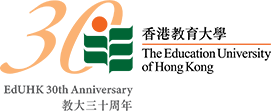The Role of Feedback Orientation in Converting External Feedback to Learning Opportunities for Implementing Assessment-as-Learning in the Context of Feedback
Dr Yang Lan, Assistant Professor at the Department of Curriculum and Instruction, The Education University of Hong Kong, has written a book chapter entitled ‘The Role of Feedback Orientation in Converting External Feedback to Learning Opportunities for Implementing Assessment-as-Learning in the Context of Feedback’. The chapter, which features in the book Assessment as Learning: Maximising Opportunities for Student Learning and Achievement (Z. Yan & L. Yang [Eds], Routledge, 2021), looks at students' feedback perceptions conceptualised in a construct called feedback orientation and the links with learning opportunities.
The key argument is that not all feedback can be effective.
Students have their individual differences, leading their perceptions and interpretations of feedback differently. Dr Yang’s chapter reports key findings from a systematic review to understand students’ feedback perceptions and the links with learning opportunities. It does this through the lens of Feedback Orientation, which is a construct consisting of multi-dimensions of student feedback perceptions: perceived usefulness of feedback (feedback utility), perceived capability to use feedback (feedback self-efficacy), perceived social value to use feedback to maintain and enhance student-teacher relationship (feedback social awareness), and perceived responsibility for using feedback to improve academic performance/achievement (feedback accountability). These dimensions of feedback orientation collectively determine an individual's overall receptivity to feedback.
This systematic review expands the current scope of understanding and harnessing the power of feedback from the perspective of students. Despite the powerful influence of feedback on learning, we know little about the complexity of the feedback process in authentic learning and teaching situations from a student's perspective to make it work more effectively in the classroom. The relationship between external feedback and students' learning opportunities might not be linear. Evidence through meta-analytical studies indicates that students may not take on the feedback because of their perceptions towards it. If students are not internalising feedback to help them engage in learning, achieve, and create new learning opportunities, Assessment as Learning in the context of feedback does not happen. Students’ feedback orientation, therefore, plays an essential role in converting external feedback to learning opportunities to process feedback mindfully. Only when students use teacher feedback to adjust their learning strategies, learning goals and actively monitor their learning progress and achievement can they authentically practice Assessment as Learning in the context of feedback.
In summary, Dr Yang reviews and provides an evidence-based feedback ecological model showing how students can convert external feedback into learning opportunities, including productive feedback processing and learning engagement.
To learn more about this publication, please click here.









